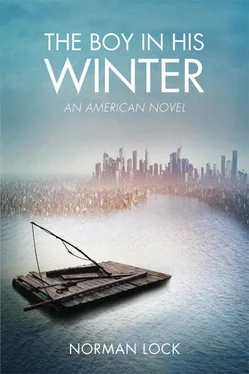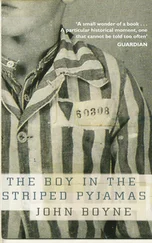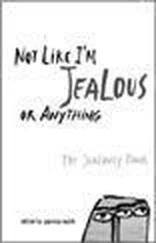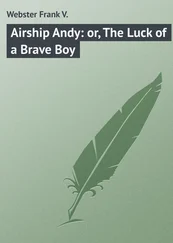What had made me so consummate a salesman?
My perfidious childhood — in time and out of it. My apprenticeship with masters of flimflam: Tom Sawyer, Edgar Connery, and many another well-dressed and well-spoken rascal.
In the summer of 2034, I crossed the Atlantic in a 150-foot yacht: the first of its size built by the company. We were delivering it to the king of Spain, who would exchange our captain and crew for his at Gran Canaria. His obsession was big boats, especially fast ones like the Chronos 150, which had sea-trialed at forty knots. I planned to remain on board while the king cruised from Maspalomas, north across the Bay of Biscay, then through the Channel to Rotterdam. There, I would leave him to his affairs and see to mine in Papendrecht, near Amsterdam, at the office of our naval architect. Each year, I met with him to convey the wishes of our owners concerning alterations and enhancements to the line. He — his name was Willem van Oosterzee — adored De Stijl, whose vibrant austerity was felt in his designs for boats, as well as in his swank building overlooking the river Merwede, with its Gerrit Rietveld chairs and two Theo van Doesburg oils. Willem was himself sleekly dynamic and taught me much about modern art and music and — a Dutch fixation — herring and gin. I enhance the former with mustard, the latter with four drops of Angostura bitters.
You see how precious I became in middle age. Twain, if he could have recognized Huck in me, would have hated my guts. But the “Territory” Huck had lit out for in 1835 developed, in two centuries, into a country beyond the recognition of Americans who endured much for their own sake and for that of your contemporaries pledged to the self and its constant aggrandizement. We became a nation of pleasure seekers; not all, of course, but enough to form a constituency with strength to pervert the virtues of democracy. Debasement may have been inevitable; perhaps there was a fault line in our nascent character that money and the pursuit of happiness opened wide enough to engulf and darken all our hopes.
You don’t believe it? Read de Tocqueville or Mr. Lincoln’s second inaugural address and then read your morning newspaper. But readers of this ebb and flow of memory want to hear about the Canary Islands and the king of Spain. About wealth, power, and indolence, for which men and women should — with laudable obsession — dedicate their lives and the sacred blood of others. In the year 2077, ambition is our principal virtue. I wonder if it was always so.
THE KING OF SPAIN WAS NOT MY FIRST BRUSH with royalty: I had wrangled props and scenery, deloused Juliet’s horsehair wig, and represented a retinue of retainers in several of the duke’s renditions of Shakespearean drama during my youth — the one Mark Twain chronicled. Of course, the duke’s pedigree was not so pure as that of King Juan Carlos, the — I have forgotten his regal denomination. We hit it off, the king and I; and after an hour’s fawning, I was allowed to call him Juan.
He treated me with respect, serving up additional proofs of a democratic spirit by dismissing the crew and making me a Spanish omelette in the galley of his new yacht — he named her Canción de Luna —and pouring me, with his own immaculately manicured hands, a pleasantly chilled Jurançon. We sat on the sundeck, smoking fat Havana cigars, having bitten off their ends in easy fellowship. I told him a story of my life, and then he told me his.
He recalled with tender yearning a young girl met by chance in a tapas bar in Barcelona’s El Raval Bario. Like the prince in another of Twain’s books, Juan Carlos had given his bodyguards the slip; and disguised as a stevedore — or else a movie usher, I can’t quite remember which — he ate chopitos, prawns, and fried quail eggs on bread, washed down with beer, with his pumiced elbows on the sticky tabletop. While returning from the cuarto de baño, he collided with a waitress carrying plates of empanadillas. They became lovers soon after Juan Carlos had stooped to pick up the sardines in onion sauce, the broken pastry shells and plates.
“I was with her only the one night,” he said wistfully. “In the morning, I was once again el rey. I never saw her after that, but perhaps she realized her good fortune when, later on, she received the key and title to an Aston Martin. It was used — by my father — but very gently.”
Moved by an insurgency of desire, he went inside to be alone. I sat on while my cigar burned toward extinction and — as if to spite all handmade sources of light and comfort — the stars emerged, repeating for me their familiar patterns on the sky. I, too, yielded to the past: a night in 2005 when I had sprinkled ash in memory of a man drowned on the other side of the ocean. Unsettled, I dropped my spent cigar into an Atlantic warmed by Africa and the Sahara, heard it briefly hiss, went inside, and — undone by weariness, wine, and the ocean’s drubbing on the hull — was soon asleep. I fell down into the unlit ocean, where vague shapes combine in dreams, and wondered why, unlike the king, I could not summon even a fleeting memory of tenderness with a woman. Not even for — no, I won’t say her name. She’s alive yet, in Palm Beach, and litigious when it comes to former lovers, which are many.
There was — about our trip north along the coastlines of Morocco, western Portugal, and Spain — something nearly magical. The Canción behaved as though she had passed directly from the brain of the naval engineer who drew her hull to the ocean, without need of any other construction than that which happens in the mind. She was the radiant idea of a yacht. Her engines were a dream of thrust and ascendancy, lifting her bow into the topaz sky while her stern drew an ever-widening vee behind us.
“She moves like a logical argument from one shining term to the next, toward an ineluctable end,” said Juan Carlos, who was, during the space of that journey, changed, like someone in a spell.
He spent the time, which seemed unmeasurable, on deck, playing shuffleboard or shooting skeets, or inside the cabin, feeding Spanish coins into a slot machine or playing the piano. Astonished, I listened as he moved effortlessly from “Chopsticks” to Debussy’s “Poissons d’or”—this man who had been tone-deaf since birth. Finished, he stood for my ovation, which I gladly gave, while a señorita dressed pertly in a sailor’s blouse showered him with roses.
Wanting to be alone, I went outside and, sitting in a deck chair, watched the western ocean turning gold. It was then — I swear! — I saw Jim cradled by a golden wave, wreathed in a Stephen Foster song. His course, unaltered by the prevailing current, tended toward the place of his birth: Africa. He may have hoped to find his wife and children there. On the raft, in the shade of the lean-to, during intimate and earnest conversations with Henry Wilson, Jim might have heard of Marcus Garvey’s Back to Africa movement. I didn’t blame Jim for turning away from his countrymen; after all, he’d been enslaved and lynched by them. Seeing him now recalled me sharply to our common past: a shapelier time, a happier one for me, though not for him.
Thank you for this dream! I shouted in my mind, so as not to disturb Juan Carlos, who had gone below to the royal suite in order to savor his.
How marvelous it is sometimes to feel the minor agony of a broken heart! (I supposed this to be true, for I had yet to undergo love’s trials, however much I knew of its lunacy.)
Jim vanished into the east, where sky and water had turned dark after the departed sun. The moment when day’s effulgence suffers its eclipse is terrible! I was harrowed by a thought, perhaps because of it: What would become of Jim, or any other creature cursed with immortality, if the world were destroyed? Where all is naught, what space can an immortal occupy — what ground is left to stand on? A chilling thought made all the more so by another: Suppose Huck Finn is immortal, too, as experts in literary history have declared him? Does it matter I’ve left the role and changed my name to Albert Barthelemy?
Читать дальше












